SLP Managers: Don’t play favourites!
The big picture:
Most managers try to respect and pay attention to all team members. But evidence suggests that many bosses have (or are seen to have) “in-groups” and “out-groups”.
Why it matters:
Playing favourites (even unconsciously) can decrease:
- engagement, job-satisfaction, and performance for team members who perceive themselves to be in an out-group;
- team morale and productivity for the practice;
- service quality for clients; and
- the overall effectiveness of the manager, including their ability to achieve practice goals.
Zoom in:
Speech pathologists (SLPs), like workers in any organisation, pay close attention to how they are treated by managers compared with others of similar status or talents in their workplace. SLPs:
- notice any differences in the manager’s tone, sincerity, body language, style, emotional support, flexibility, criticism and praise; and
- can feel resentment or a sense of “relative deprivation”, that can trigger strong emotions, like mistrust, dislike, contempt and avoidance; and, in turn, reduce their cooperation, contributions to problem-solving and knowledge sharing, and their motivation to do their best.
Tackle it:
No one – especially managers – should want talented and productive SLPs to feel like outsiders at work. To pick it up, managers can conduct weekly mini ‘audits’ of their working relationships with each report and ask themselves three questions:
- Did you seek out the SLP’s company, e.g. to discuss big-picture issues or to engage in social conversations?
- Did you acknowledge the SLP’s capabilities, e.g. by soliciting opinions and suggestions?
- Did you assist the SLP to grow, e.g. with special projects, coaching or constructive feedback that shows you respect, trust and back the SLP?
If you fail a mini-audit:
Address the problem with the SLP immediately:
- Apologise for not giving the SLP enough time and attention.
- Identify common ground you may have overlooked.
- Acknowledge their expertise and accomplishments.
- Discuss their career aims, and set high expectations that show confidence in their abilities.
- Invite suggestions and ideas and give them a chance to solve identified problems for themselves (don’t micromanage).
If things start to get toxic:
Try to repair the relationship and turn things around:
- Meet on safe, neutral ground to minimise the power differential.
- Start with the mission of the practice – helping clients. Acknowledge the SLP’s right to see things differently, and to challenge and to disagree constructively in pursuit of the mission.
- Take responsibility for your role in allowing things to spiral, and state your wish to improve the relationship and how you support the SLP.
- Use prompts – “How do you see it?”, “What could we have done differently?” and “Say more about why this is important to you” – and listen to the answers carefully!
- Make a written plan to reestablish a productive and respectful relationship that spells out what is critical to each person and commit to specific changes to foster joint accountability. This may include details about the way you interact and communicate with each other at work, “pet peeves” to avoid, and how to approach conflict.
- In some cases, recognise that the employee’s goal may be to transition into a different role, with a different manager, or even to a different employer, and stay supportive, respectful, and professional if this is what the SLP wants to do.
Bottom line:
No one sets out to neglect a team member or to play favourites. But managers may fail to notice when it’s happening if they don’t have practices or habits to pick it up. Work hard to eliminate any perception of in- and out-groups. Even small improvements in supervision/coaching, training, appreciation, respect and our ability to give (and take) constructive feedback can boost an SLPs well-being, team productivity, and cohesion.
Go deeper:
Toegel, G. & Barsoux, J-L., (2024), Stop Playing Favorites, Harvard Business Review, July-August
Read more:
How to Supervise Speech Pathologists Properly in Private Practice: Paperback

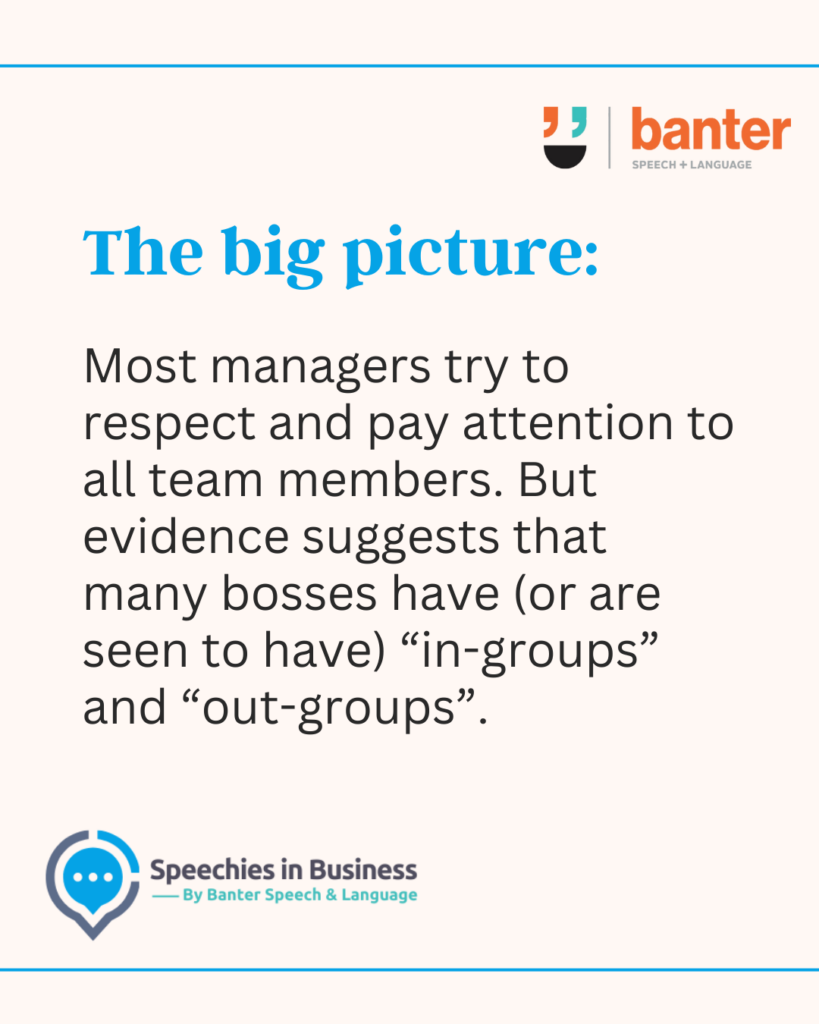
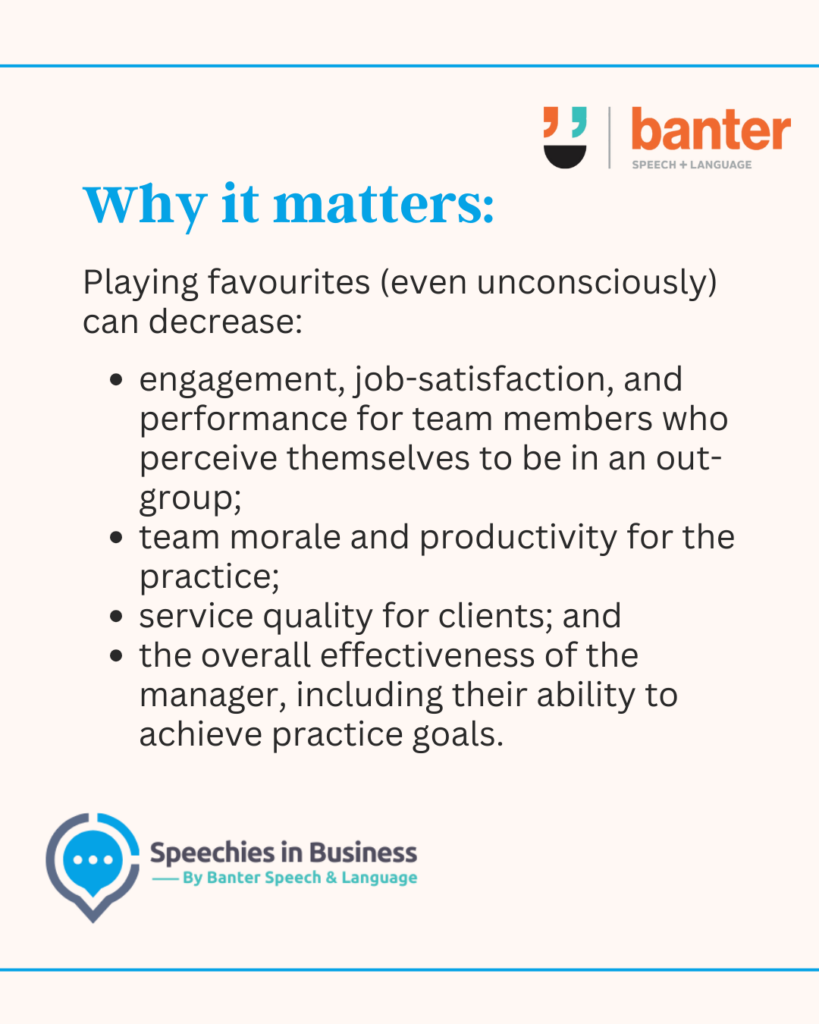
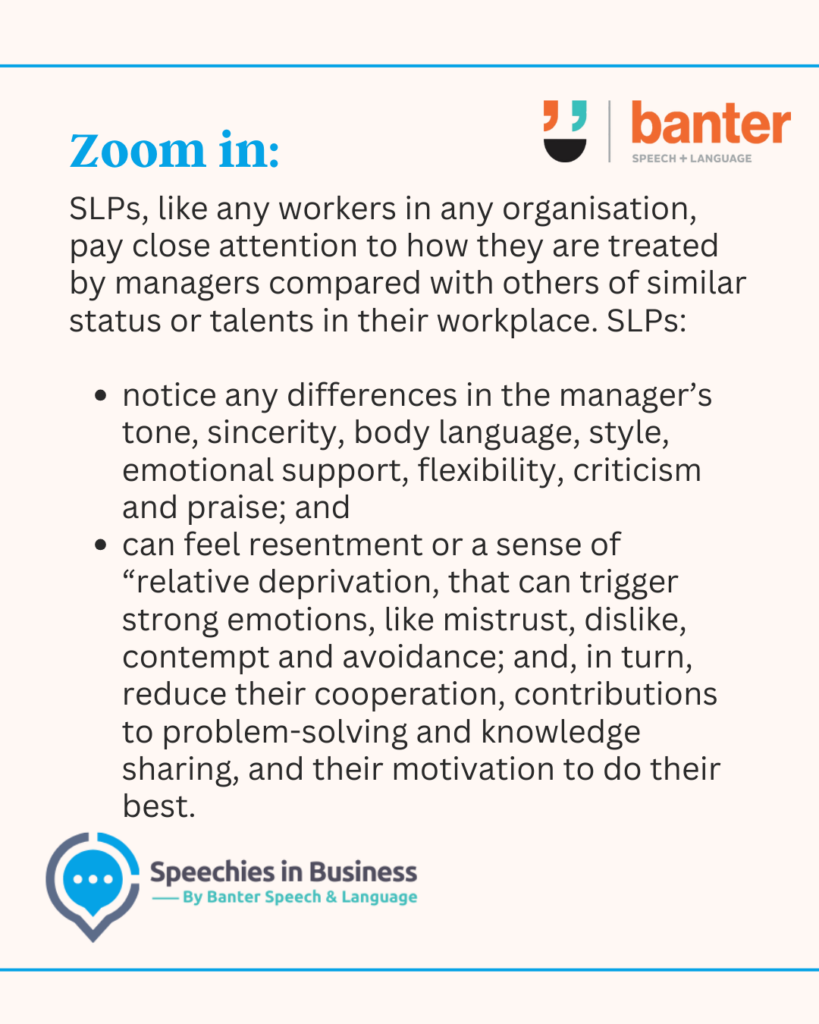
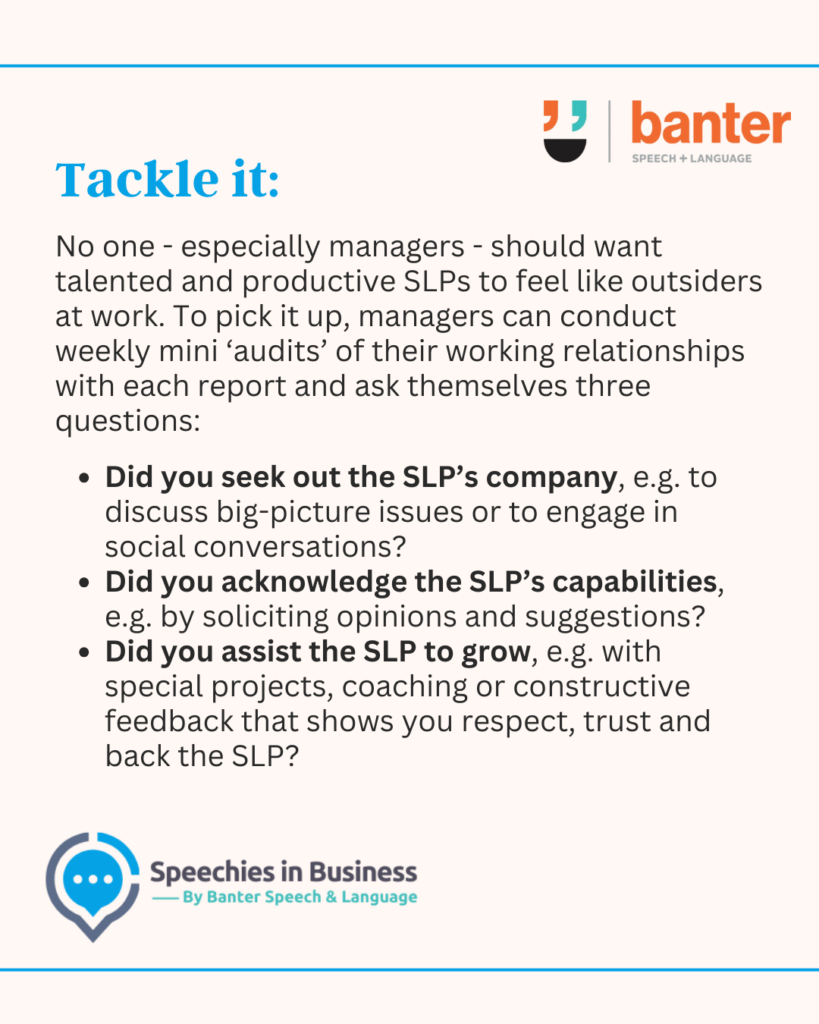
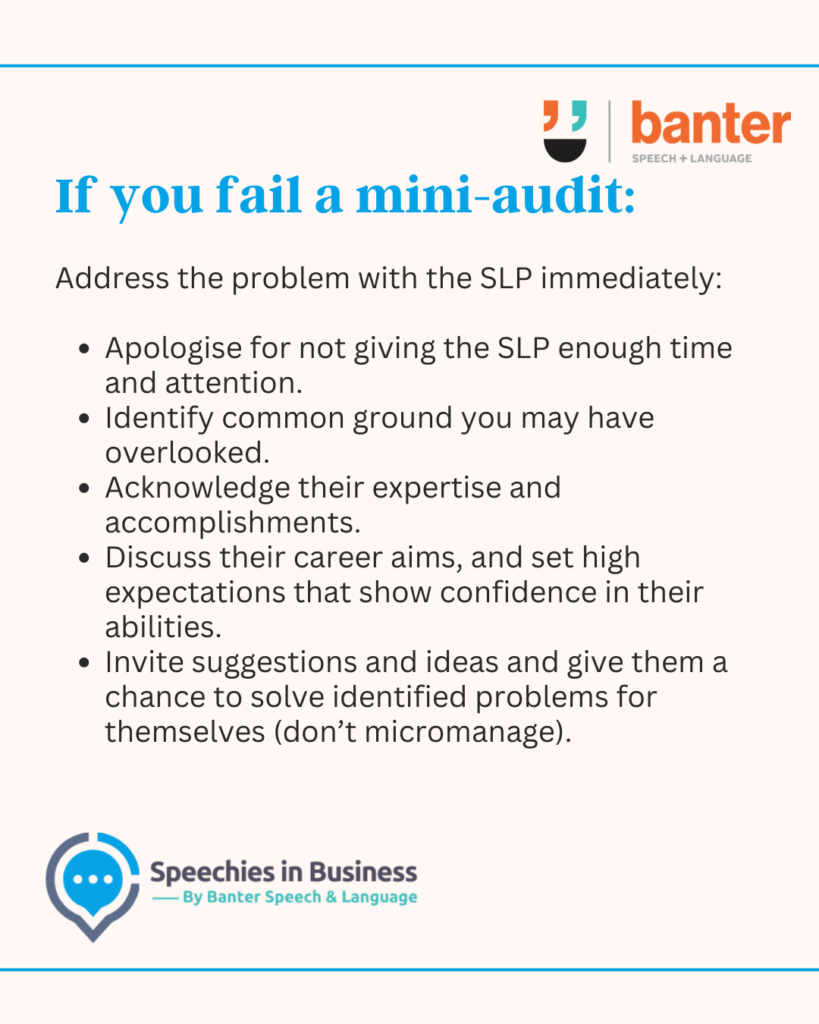

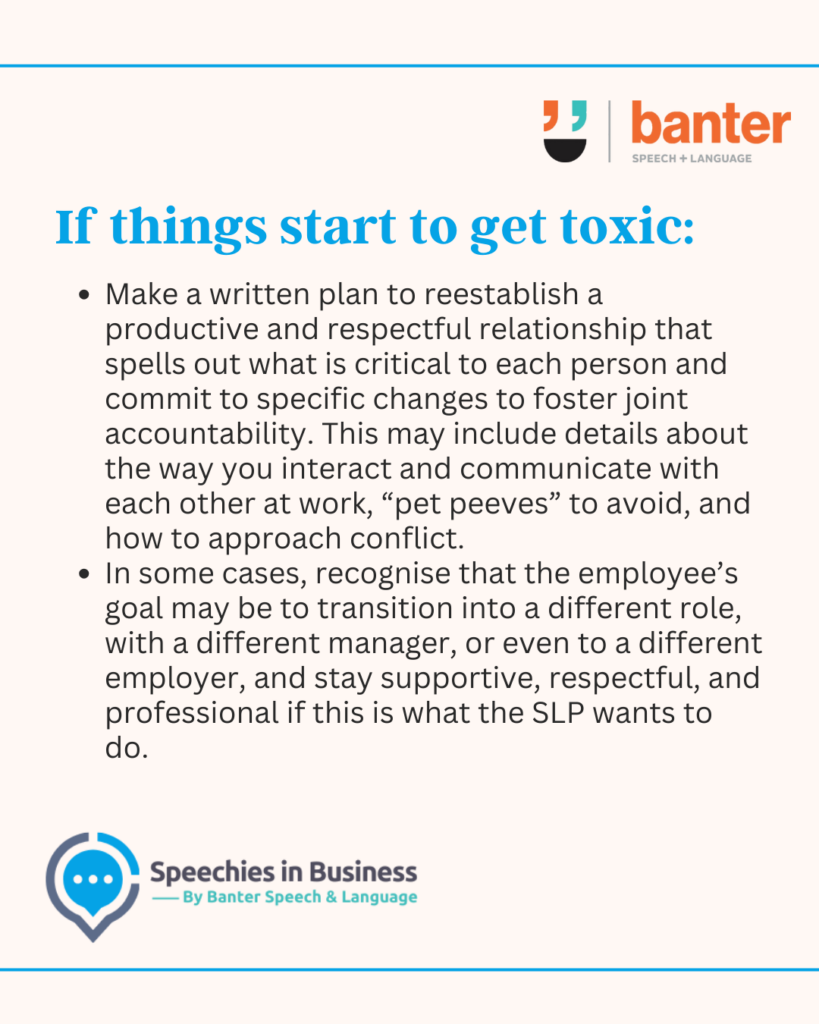
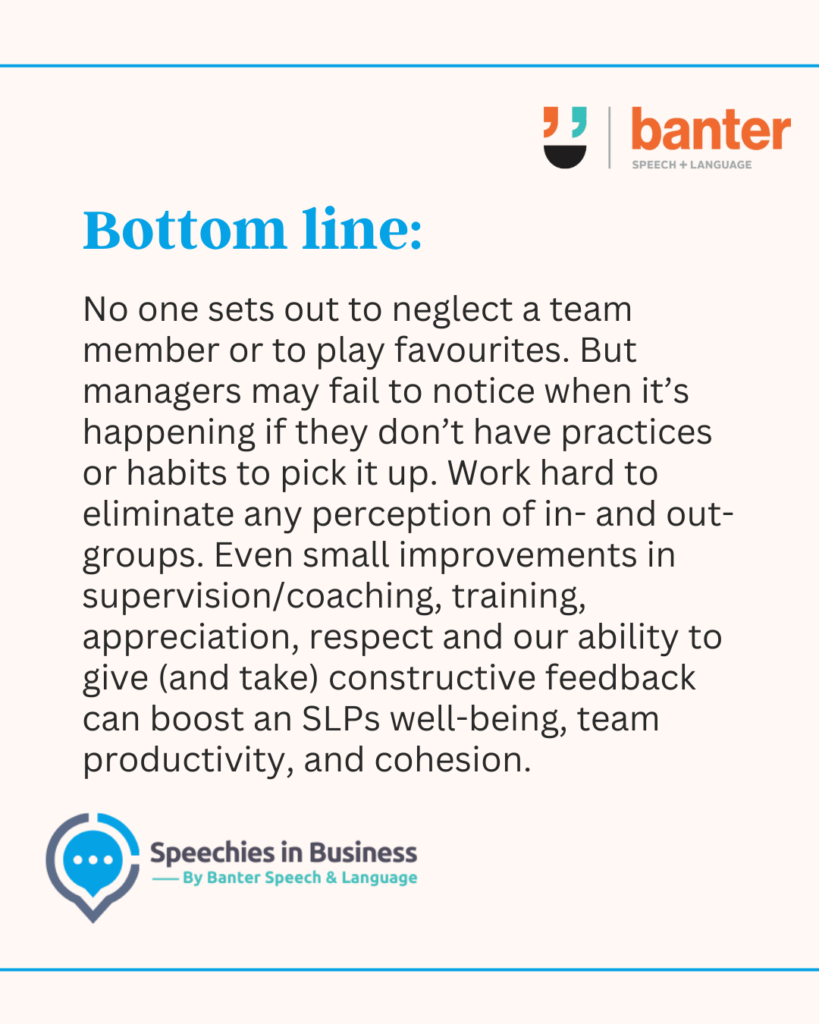

This article also appears in a recent issue of Banter Booster, our weekly round up of the best speech pathology ideas and practice tips for busy speech pathologists, speech pathology students and others.
Sign up to receive Banter Booster in your inbox each week:








